My three month internship with Skanska UK
20/07/2017
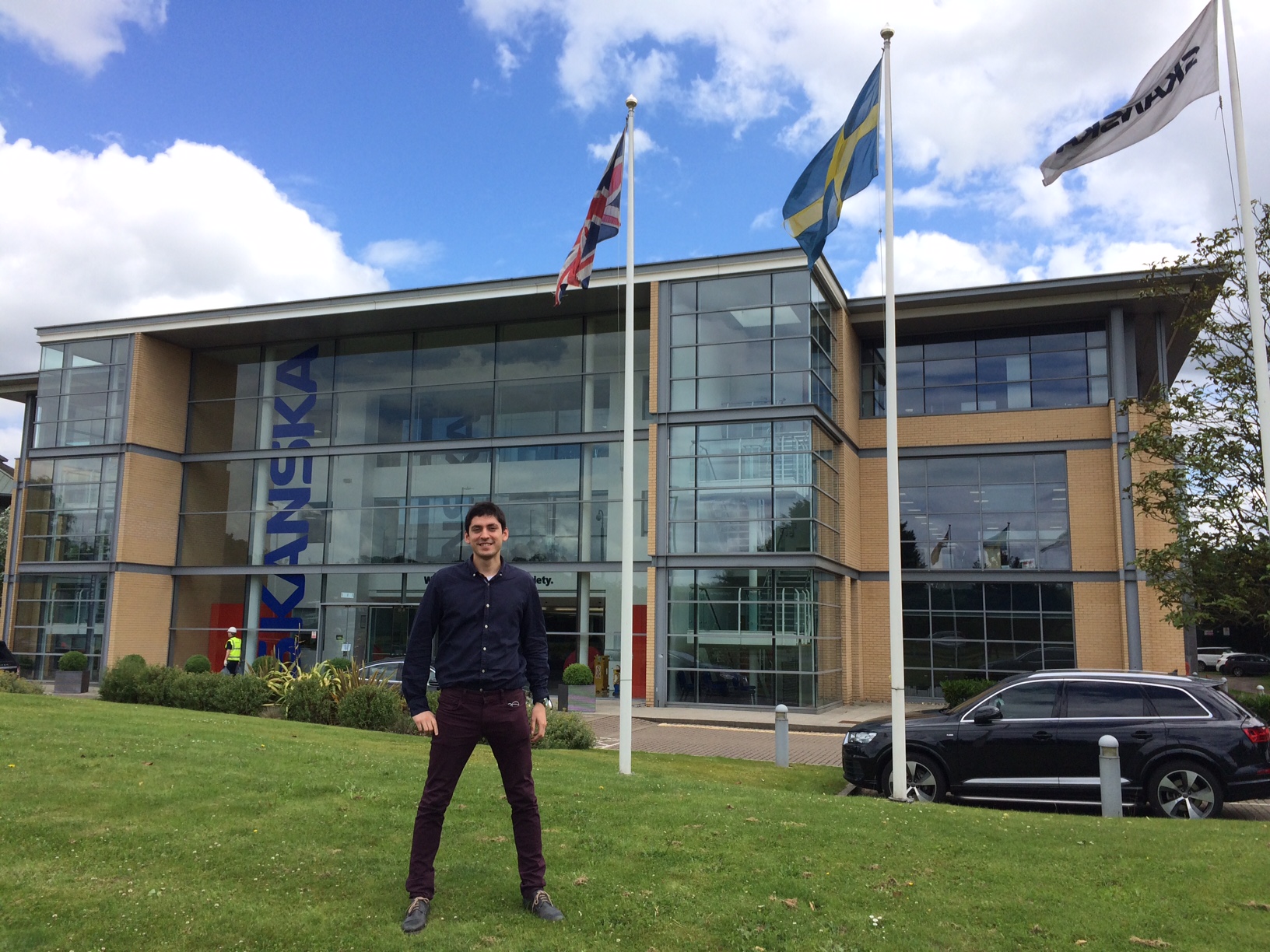
What is the organisational culture like?
In general, it is very open and consensus oriented, you can see it is quite non-hierarchical in terms of treatment of people. I really like that, even though it is a big company in a competitive industry, you can see people are calm and generally not suffering the stress or pressure of the work. You also notice their emphasis on managing a good work-life balance.
What has been the biggest challenge?
The commuting has been tough, especially after being in Cranfield and having everything within five minutes walking distance. It is about a four hour roundtrip to get to the office because of where I live in London but I like using this time to read or catch up with messages, so you do get used to it pretty quickly.

Apart from that, understanding the industry and how complex things work has been a challenge. There are many technicalities and operational processes which do take time to absorb, however this has been fun and is very interesting. Even though construction is a big part of how people live, we actually know very little about the processes behind building a new road or tunnel. Behind the scenes, there are a lot of factors related to tender offers, technicalities, permissions, collaborations between players and other aspects that I still have to learn.
How are decisions made?
It really depends in which area you work, but in general I would say decisions are made on consensus and you never have only one person making all the important decisions.
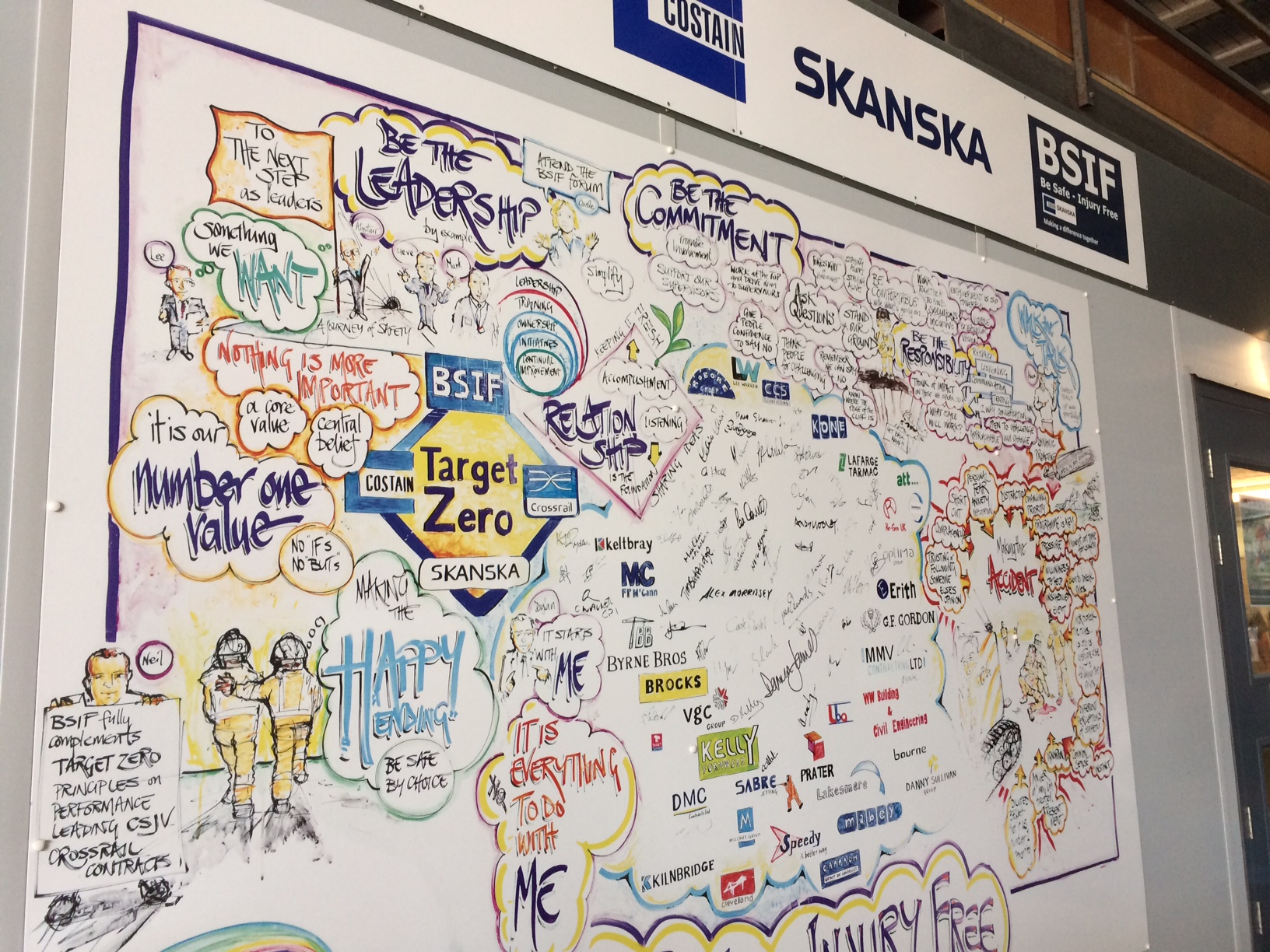
How do teams work within the organisation?
There are many different areas and you have people spread all over the city because of the various projects going on, whether they are bids or construction already taking place. This is a project based organisation where you sometimes have to work in Joint Ventures with competitors. Each construction is unique in terms of team members, technicalities and requirements.
What have you learned?
I have learnt a lot about the industry, the different layers of the construction processes and how Skanska gets ready to compete. I liked the fact that my line manager gave me the opportunity to participate in discussion forums about different sectors of the company. This allowed me to improve my understanding of the operational element of such a complex industry, the processes behind it and gain an insight into the human aspect of these organisations; how different people cooperate to bring the best to the business.
With relation to what I came here to do (i.e. knowledge management), I have learnt so many important things about a subject which is usually not part of a business curriculum but is actually closer to HR, Strategy, Operations and IT. Getting to know more about knowledge management has given me new insights about how organisations work and learn about what they do. This is fundamental, particularly nowadays when there are many possibilities to compete in ways we could not imagine. It is an aspect many organisations and individuals are not aware of or do not take the time to manage well, therefore missing the opportunity to be more competitive in the long run.
What do you think are the benefits of internships in a large/small organisation?
In a large organisation, it is interesting to know about the complexities of coordinating a large amount of labour and to see how processes work on a larger scale, understanding the bigger picture of what an organisation does.
It is fascinating if you go back in history and think how an organisation like Skanska started more than 100 years ago in Sweden probably with a big dream and small team. There is definitely a lot to learn from different functional areas and people who have been in the company for a long time. In a large organisation you are always learning something or meeting someone new, and that keeps your daily working life very interesting.
How have you found your year at Cranfield?
The year has gone too fast, it feels like only yesterday when I was new on campus and meeting everyone during induction week. Overall, it has been a very positive year and, at this stage, I think it was the right choice to have chosen this Master’s programme as I can see the positive impact the experience has had on myself, both from a social and educational perspective.
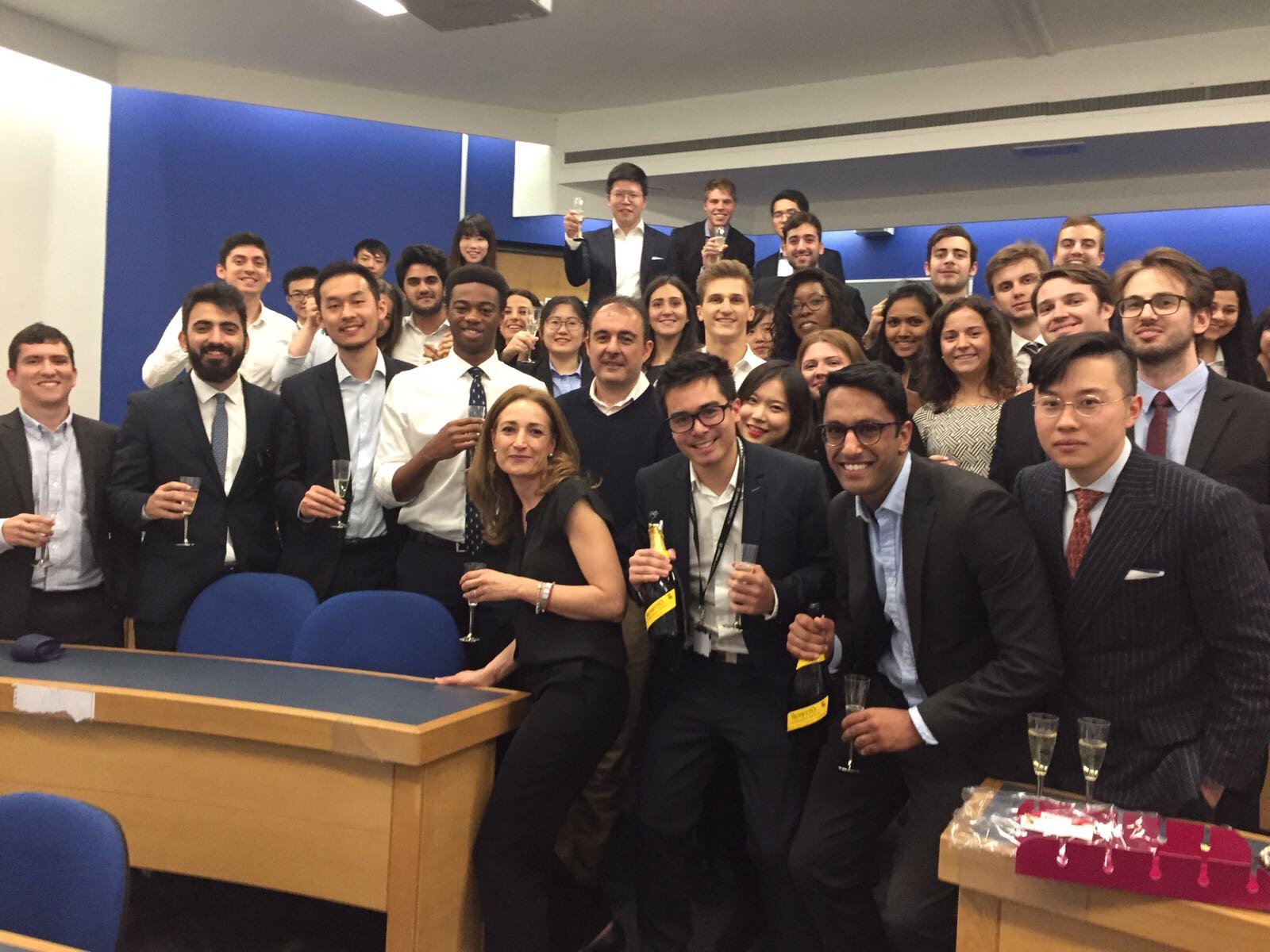
What has been the best experience of your Master’s course?
It is hard to say since I have so many good memories but if I had to choose one it would be the elective module in Granada which was a very good trip in terms of learning and sharing with my other classmates in an exciting new place.
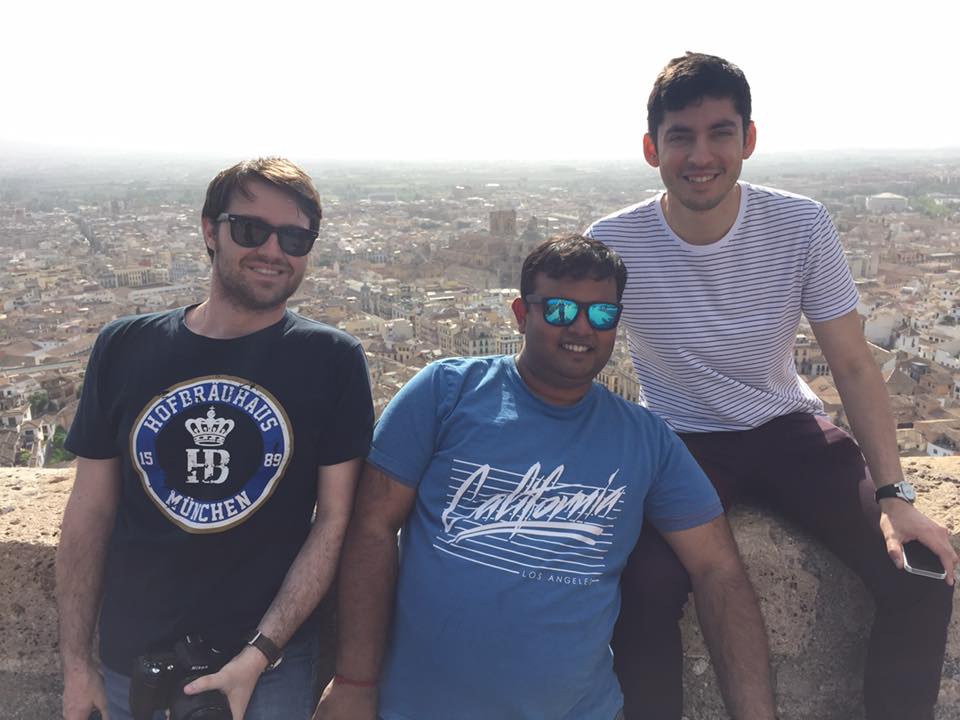
Apart from that, I liked the day we went for Tree Ninja in term 3 and I found some of the simulations/assignments very interesting. The management consulting project or the Everest simulation in MPO are some other enjoyable experiences that come to mind.
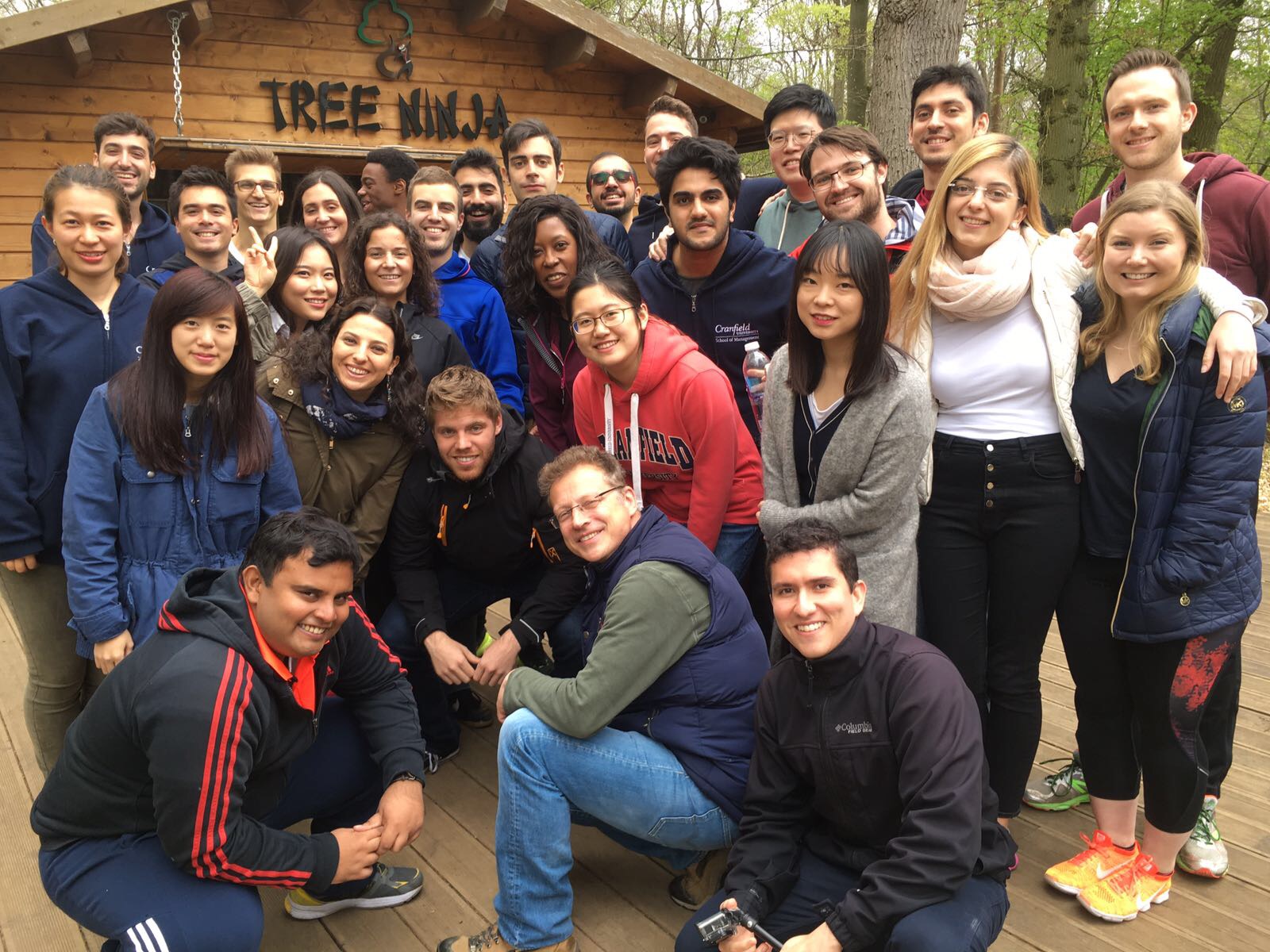
Why do you think the internship is important?
It is very important because it is a good bridge between what you learn throughout the year and the real working world. The career service makes sure you do not go to companies to do random or unrelated tasks. You are pretty much in a consultant role because you are there to solve a problem. So naturally you are forced to manage your time, be proactive and add value to the business as much as possible; representing both yourself as a worker and Cranfield University.
Aside from that, nowadays there are many graduates from top ranked universities who are unable to find a job and, for many of us, the internship placement gives us a strong start right after we have learnt the theory at university. In fact, many companies decide to hire their interns after the three-month placement.
What skills from the MSc have you applied during your internship so far?
I have applied the professionalism Cranfield talked about, in terms of always being on time and keeping to your promises/deadlines. Part of that also includes team work, a willingness to listen to others opinions and being creative. This might sound basic but if you master these soft skills it makes a big difference in the workplace, and that’s the long-term goal for me.
From a theoretical perspective, I have been reading my lecture notes again, specifically on Strategic Management, Operations, Managing People and Organisations, and Supply Chain which has helped me to better understand the business and relate it to what I am doing currently. This shows that what we learnt during the year will not be forgotten and has a practical application from the company’s perspective.
What are your aims and goals for the future? How do you think your time at Cranfield will help you achieve those?
I plan to have an international career as a generalist probably in the strategy or HR functional areas. I still do not know exactly where because at the moment there are so many options and some restrictions as a non-EU citizen which makes it harder for job applications.
Also, as curious person I do not discard the possibility of doing another MSc or even changing fields in the future. I like learning and the world is constantly changing so you have to always be one step ahead when it comes to skills and relevant industry-knowledge.
Cranfield has been a fundamental step in my career. One of their strengths is in their emphasis on teaching material you are actually going to use instead of just giving you an information overload. Cranfield has also helped me to improve my leadership skills, have a better awareness of my environment including myself and to see business from a holistic perspective in a way I found highly engaging throughout the year.
More importantly I now feel like there are some great opportunities out there and I can permit myself to dream big as long as I am proactive, work smart and learn from others.

Categories & Tags:
Leave a comment on this post:
You might also like…
From classroom to cockpit: What’s next after Cranfield
The Air Transport Management MSc isn’t just about learning theory — it’s about preparing for a career in the aviation industry. Adit shares his dream job, insights from classmates, and advice for prospective students. ...
Setting up a shared group folder in a reference manager
Many of our students are now busy working on their group projects. One easy way to share references amongst a group is to set up group folders in a reference manager like Mendeley or Zotero. ...
Company codes – CUSIP, SEDOL, ISIN…. What do they mean and how can you use them in our Library resources?
As you use our many finance resources, you will probably notice unique company identifiers which may be codes or symbols. It is worth spending some time getting to know what these are and which resources ...
Supporting careers in defence through specialist education
As a materials engineer by background, I have always been drawn to fields where technical expertise directly shapes real‑world outcomes. Few sectors exemplify this better than defence. Engineering careers in defence sit at the ...
What being a woman in STEM means to me
STEM is both a way of thinking and a practical toolkit. It sharpens reasoning and equips us to turn ideas into solutions with measurable impact. For me, STEM has never been only about acquiring ...
A woman’s experience in environmental science within defence
When I stepped into the gates of the Defence Academy it was the 30th September 2019. I did not know at the time that this would be the beginning of a long journey as ...






